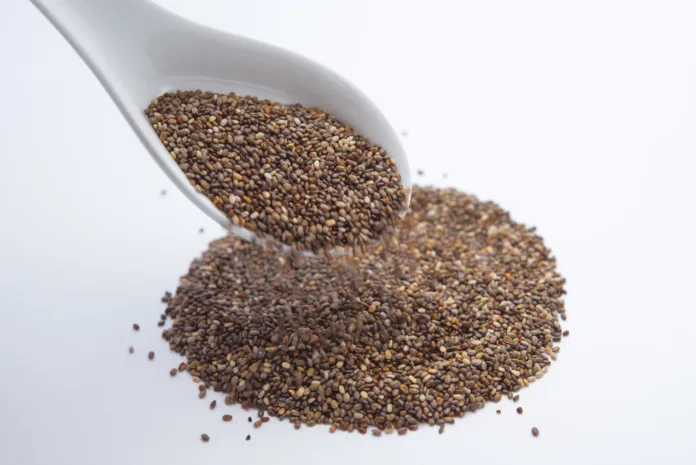Chia seeds are a small but mighty superfood packed with essential nutrients that can help diabetics manage their blood sugar and manage their overall health. Chia seeds are a rich source of protein, dietary fiber, omega-3 fatty acids, and antioxidants, all of which can help diabetics in controlling their blood sugar levels and preventing complications from diabetes.

Chia seeds are an excellent source of dietary fiber, containing up to 10 grams of dietary fiber in a single serving. This dietary fiber helps to slow down the absorption of glucose in the bloodstream, which can help to maintain healthy blood sugar levels. It also helps to keep you feeling fuller for longer, which can help to control cravings and reduce calorie intake.
Chia seeds are also a great source of plant-based protein, containing up to 4 grams of protein in a single serving. This plant-based protein helps to regulate blood sugar levels and prevent spikes in blood sugar after meals. It also helps to keep you feeling fuller for longer, which can help to reduce overall calorie intake.
Chia seeds contain a high amount of omega-3 fatty acids, which have been shown to reduce inflammation and have beneficial effects on insulin sensitivity. This can help to reduce insulin resistance, which is a common complication of diabetes. Omega-3 fatty acids can also help to reduce the risk of heart disease, which is a common complication of diabetes.
Chia seeds are also a rich source of antioxidants, which help to protect cells from free radical damage. This can help to reduce the risk of complications from diabetes, such as nerve damage and kidney damage. Antioxidants can also help to reduce inflammation, which can help to reduce the risk of type 2 diabetes.
In conclusion, consuming chia seeds can be a great way to help diabetics manage their blood sugar levels and reduce their risk of complications from diabetes. Chia seeds are a rich source of dietary fiber, plant-based protein, omega-3 fatty acids, and antioxidants, all of which can help to reduce insulin resistance, reduce inflammation, and reduce the risk of complications from diabetes.




